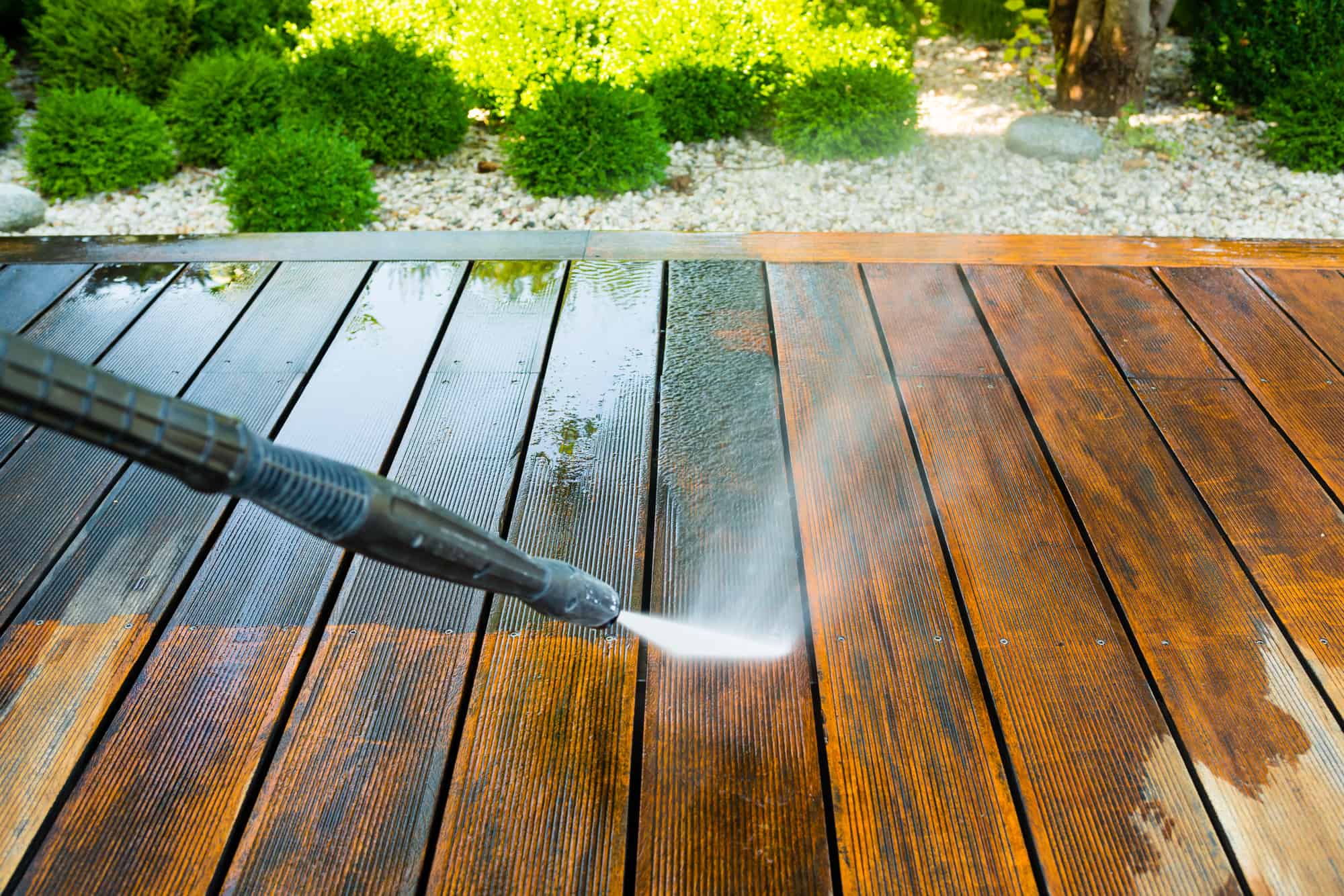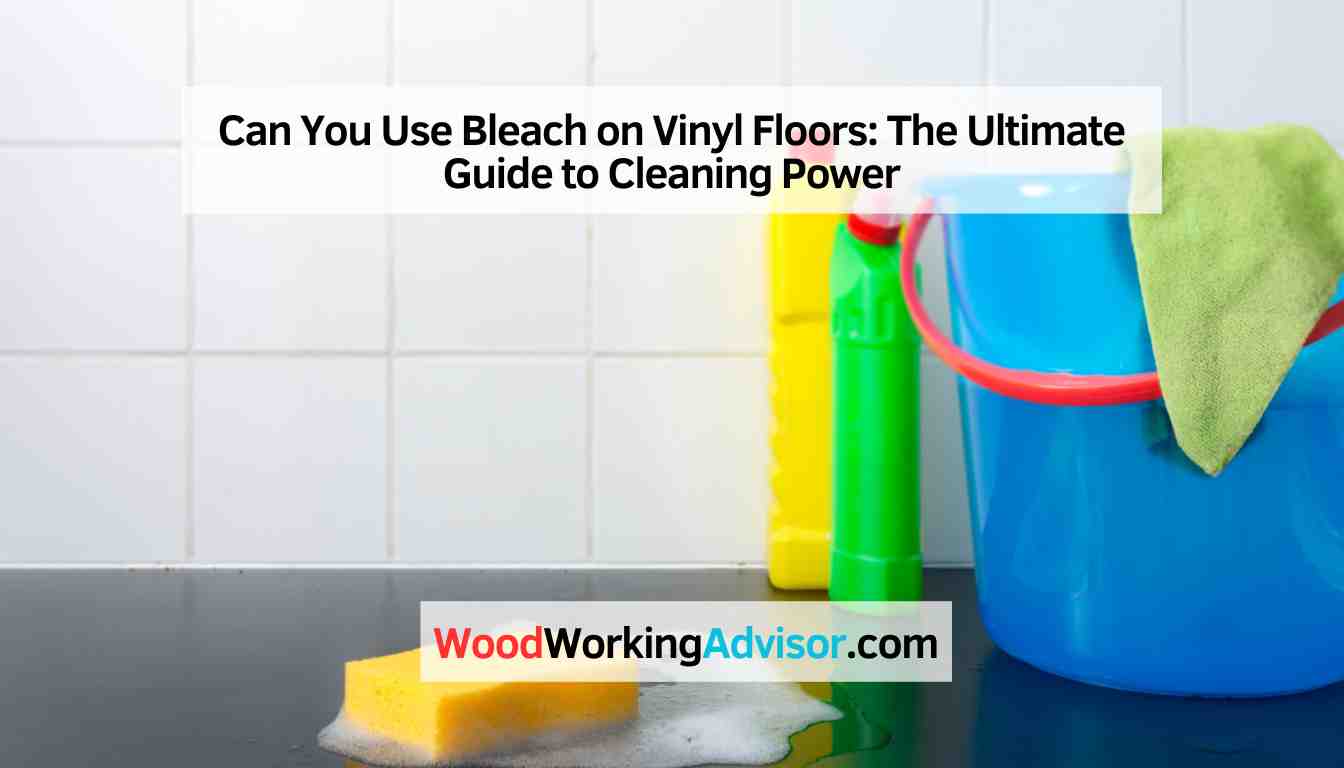Yes, bleach can be used on vinyl floors, but it is important to dilute it properly to avoid damaging the flooring. Vinyl floors are durable and easy to maintain, making them a popular choice for many homeowners.
However, certain cleaning products, such as bleach, require special care when used on vinyl surfaces to prevent discoloration or deterioration. By following the manufacturer’s recommendations for dilution and application, you can effectively clean your vinyl floors with bleach while keeping them in good condition.
Remember to test the bleach solution in an inconspicuous area first to ensure compatibility with your specific flooring type. This simple precaution can help you maintain the beauty and longevity of your vinyl floors for years to come.

Credit: www.fortador-usa.com
Importance Of Clean Vinyl Floors
benefits Of Clean Floors
1. Aesthetic Appeal: Clean floors enhance the overall look and feel of your space.
2. Improved Durability: Regular cleaning can prolong the lifespan of your vinyl floors.
3. Healthier Environment: Clean floors reduce the buildup of allergens and bacteria.
risks Of Unclean Floors
1. Slip and Fall Hazards: Dirty floors increase the risk of accidents.
2. Damage to Flooring: Neglected floors may suffer from stains and wear more quickly.
3. Health Concerns: Unclean floors can harbor germs and lead to respiratory issues.
Understanding Vinyl Floors
Vinyl floors are a durable and cost-effective flooring option that is popular in many homes due to its low maintenance and water-resistant properties. Understanding the composition and types of vinyl floors can help homeowners make informed decisions about cleaning and maintenance. In this article, we will explore the crucial aspects of vinyl floors under the subheadings: Composition of Vinyl Floors and Types of Vinyl Floors.
Composition Of Vinyl Floors
Vinyl floors are composed of several layers that contribute to their durability and resilience. These layers typically include a wear layer, designed to protect the floor from scratches and stains, a design layer that contains the visual pattern or color, and a backing layer for stability and cushioning. This multi-layered construction makes vinyl flooring a popular choice for areas prone to high foot traffic and moisture, such as kitchens and bathrooms.
Types Of Vinyl Floors
There are primarily two types of vinyl flooring: sheet vinyl and luxury vinyl tile (LVT). Sheet vinyl comes in large rolls and is best suited for areas with minimal seams, while LVT is available in individual tiles or planks, providing a more versatile and customizable flooring option. Both types offer a wide range of aesthetic options, including resembling wood, stone, or tile, catering to various design preferences and styles.
Can Bleach Be Used On Vinyl Floors?
Can you use bleach on vinyl floors? This is a common question for homeowners looking for an effective way to keep their floors clean and free from germs. While bleach can be a powerful cleaner, it’s important to carefully consider its potential impact on vinyl flooring before using it as a cleaning solution.
Pros And Cons Of Using Bleach
Bleach can effectively remove tough stains and disinfect vinyl floors, making it a handy solution for addressing stubborn messes and eliminating harmful bacteria. On the other hand, the use of bleach on vinyl floors can also lead to potential discoloration, weakening of the floor’s structure, and harmful fumes if not used with proper ventilation and caution.
Alternative Cleaning Methods
There are several alternative cleaning methods that can be used to maintain vinyl floors without the risks associated with bleach. Some effective options include using gentle pH-neutral cleaners, vinegar and water solution, or commercially available vinyl floor cleaners. These alternatives provide safe and effective cleaning without the potential drawbacks of bleach.

Credit: nwmaids.com
Best Practices For Cleaning Vinyl Floors
Cleaning vinyl floors is an essential part of maintaining their beauty and prolonging their lifespan. However, not all cleaning methods are suitable for vinyl floors. Using the wrong cleaning products can cause damage and lead to costly repairs. In this blog post, we will discuss the best practices for cleaning vinyl floors, including a regular cleaning routine and tips for tackling tough stains. By following these guidelines, you can ensure that your vinyl floors stay clean, shiny, and in excellent condition for years to come.
Regular Cleaning Routine
A regular cleaning routine is essential for maintaining the cleanliness of your vinyl floors. Implementing these simple yet effective practices will help you keep your floors in top shape:
- Start by sweeping or vacuuming the floor to remove loose dirt and debris. This step is crucial as it prevents abrasive particles from scratching the floor’s surface.
- Prepare a gentle cleaning solution by mixing warm water with a few drops of mild dish soap. Avoid using harsh cleaners or chemicals that can damage the vinyl’s protective layer.
- Dampen a mop or soft cloth with the cleaning solution and wring out any excess moisture. Excessive water can seep into the cracks between the vinyl tiles, causing them to lift or warp.
- Gently clean the vinyl floor using the damp mop or cloth. Ensure you cover the entire area, paying extra attention to high-traffic spots and areas prone to spills.
- After cleaning, rinse the mop or cloth thoroughly and go over the floor again, this time with clean water to remove any soap residue. Proper rinsing prevents a sticky film from developing on the floor’s surface.
- Dry the floor completely using a clean, dry mop or towel. This step is essential to prevent slips and falls as well as to maintain the vinyl’s appearance.
Tips For Tough Stains
Even with regular cleaning, tough stains can occasionally occur on vinyl floors. Here are some handy tips to help you tackle stubborn stains effectively:
- For grease or oil stains, sprinkle baking soda on the affected area and then carefully rub it in with a soft brush. Let it sit for a few minutes before wiping it away with a damp cloth.
- For ink stains, apply rubbing alcohol or nail polish remover on a cloth and gently blot the stain. Be sure to test the product in an inconspicuous area first to ensure it doesn’t cause any discoloration.
- If chewing gum or adhesive gets stuck to your vinyl floor, place ice cubes in a plastic bag and gently press it against the gum/adhesive until it hardens. Once hardened, carefully scrape it off with a plastic scraper or credit card.
Remember, it’s crucial to act promptly when dealing with stains to prevent them from becoming permanent. However, avoid using abrasive cleaners, steel wool, or harsh chemical solvents, as they can damage the vinyl surface.
Maintaining The Shine And Longevity Of Vinyl Floors
To maintain the shine and longevity of vinyl floors, avoid using bleach as it can damage the flooring. Instead, opt for gentle cleaners specifically designed for vinyl to keep your floors looking their best for years to come. Regular cleaning with mild soap and water is recommended for effective maintenance.
Vinyl floors are a popular choice for their durability, affordability, and versatility. Whether in a residential or commercial setting, these floors can withstand daily wear and tear, but proper maintenance is essential to keep them looking their best and extend their lifespan. In this section, we will explore two key aspects of vinyl floor maintenance: preventive maintenance and restoration/repair.
Preventive Maintenance
Preventive maintenance plays a crucial role in preserving the shine and longevity of your vinyl floors. By establishing a regular cleaning routine and taking necessary precautions, you can prevent dirt, grime, and stains from accumulating and causing damage. Here are some tips to help you along the way:
- Regular sweeping or vacuuming: Remove loose dirt and debris with a soft-bristle broom or a vacuum cleaner with a brush attachment. This prevents scratches and reduces the risk of dirt getting ground into the floor.
- Use doormats and rugs: Place doormats both outside and inside entryways to trap dirt and moisture before it reaches your vinyl floors. Additionally, consider using rugs in high-traffic areas to protect the flooring from excessive wear and tear.
- Avoid harsh chemicals: When cleaning your vinyl floors, refrain from using bleach or abrasive cleaners. Instead, choose mild, pH-neutral detergents specifically formulated for vinyl floors. Remember to follow the manufacturer’s recommendations for cleaning products.
- Wipe up spills promptly: Accidents happen, but it’s important to act quickly. Wipe up spills and stains as soon as they occur to prevent them from seeping into the floor and causing damage. Use a damp cloth or mop with a mild cleaning solution for the best results.
- Protect against furniture scratches: Place protective pads or glides underneath furniture legs to prevent scratches when moving or rearranging items. Regularly check these pads for wear and replace them as needed.
Restoration And Repair
Over time, vinyl floors may show signs of wear and require restoration or repair. Here are some suggestions to help you bring back the shine and address common issues:
- Buffing and polishing: If your vinyl floors have lost their luster, a thorough cleaning followed by buffing and polishing can revive their shine. Use a specialized vinyl floor polish and follow the manufacturer’s instructions for usage.
- Stain removal: For stubborn stains that ordinary cleaning methods can’t remove, consider using a stain remover specifically designed for vinyl floors. Apply the product carefully, following the instructions to avoid damaging the floor.
- Repairing scratches and gouges: Unsightly scratches or gouges can be repaired using vinyl floor repair kits or individual planks/tiles provided by the manufacturer. Follow the instructions closely to ensure a seamless repair.
- Professional help: In some cases, it may be beneficial to seek the expertise of a professional floor restorer. They can assess the condition of your vinyl floors and provide a more specialized approach to restoration.
By implementing these preventive maintenance practices and knowing how to restore and repair your vinyl floors when necessary, you can enjoy their inherent durability and keep them looking beautiful for years to come. Remember, consistent attention to maintenance will not only extend the lifespan of your floors but also preserve their shine, making them a standout feature in your home or business.

Credit: www.decks-docks.com
Frequently Asked Questions For Can You Use Bleach On Vinyl Floors
Does Bleach Damage Vinyl Flooring?
Bleach can damage vinyl flooring, causing discoloration and weakening the material. It is best to avoid using bleach for cleaning vinyl floors.
What Is The Best Cleaning Solution For Vinyl Floors?
The best cleaning solution for vinyl floors is a mixture of warm water and a mild detergent. Avoid using harsh chemicals or abrasive cleaners, as they can damage the vinyl. Always test a small, inconspicuous area before applying the solution to the entire floor.
Regular sweeping and mopping will also help maintain vinyl floors.
Does Vinyl React With Bleach?
Vinyl does not react with bleach.
How Do You Deep Clean Vinyl Flooring?
To deep clean vinyl flooring, start by sweeping or vacuuming the floor to remove any loose dirt. Then, mop the floor using a mixture of warm water and a gentle vinyl floor cleaner. Use a soft mop or cloth to avoid scratching the surface.
Rinse the floor thoroughly and allow it to air dry.
Conclusion
While bleach may seem effective for cleaning vinyl floors, it can actually cause damage over time. It’s important to use gentle, pH-neutral cleaners to maintain the longevity of your vinyl flooring. Always consult the manufacturer’s guidelines for cleaning and maintenance to ensure the best results.
Regular, gentle cleaning will keep your vinyl floors looking great for years to come.


